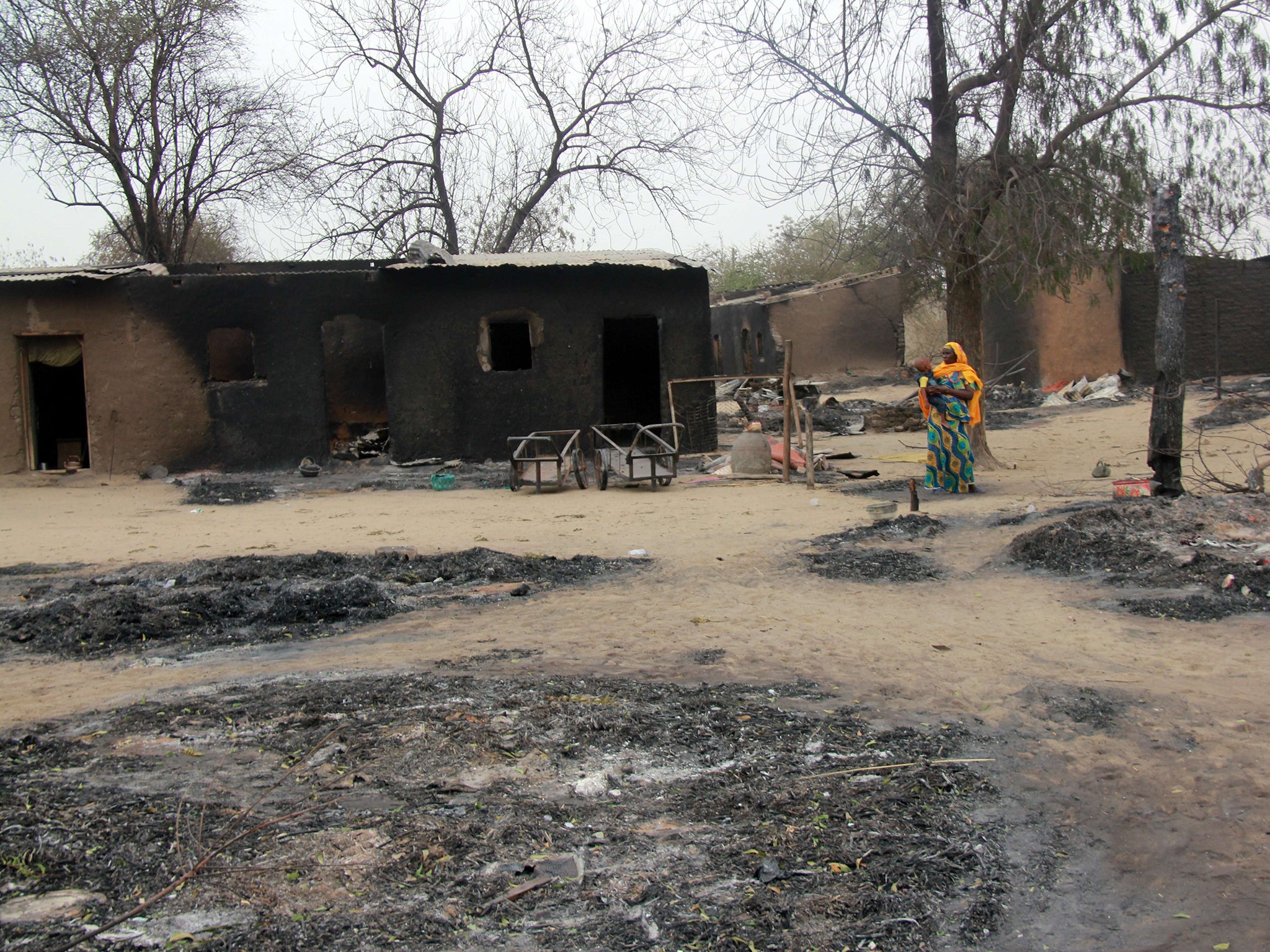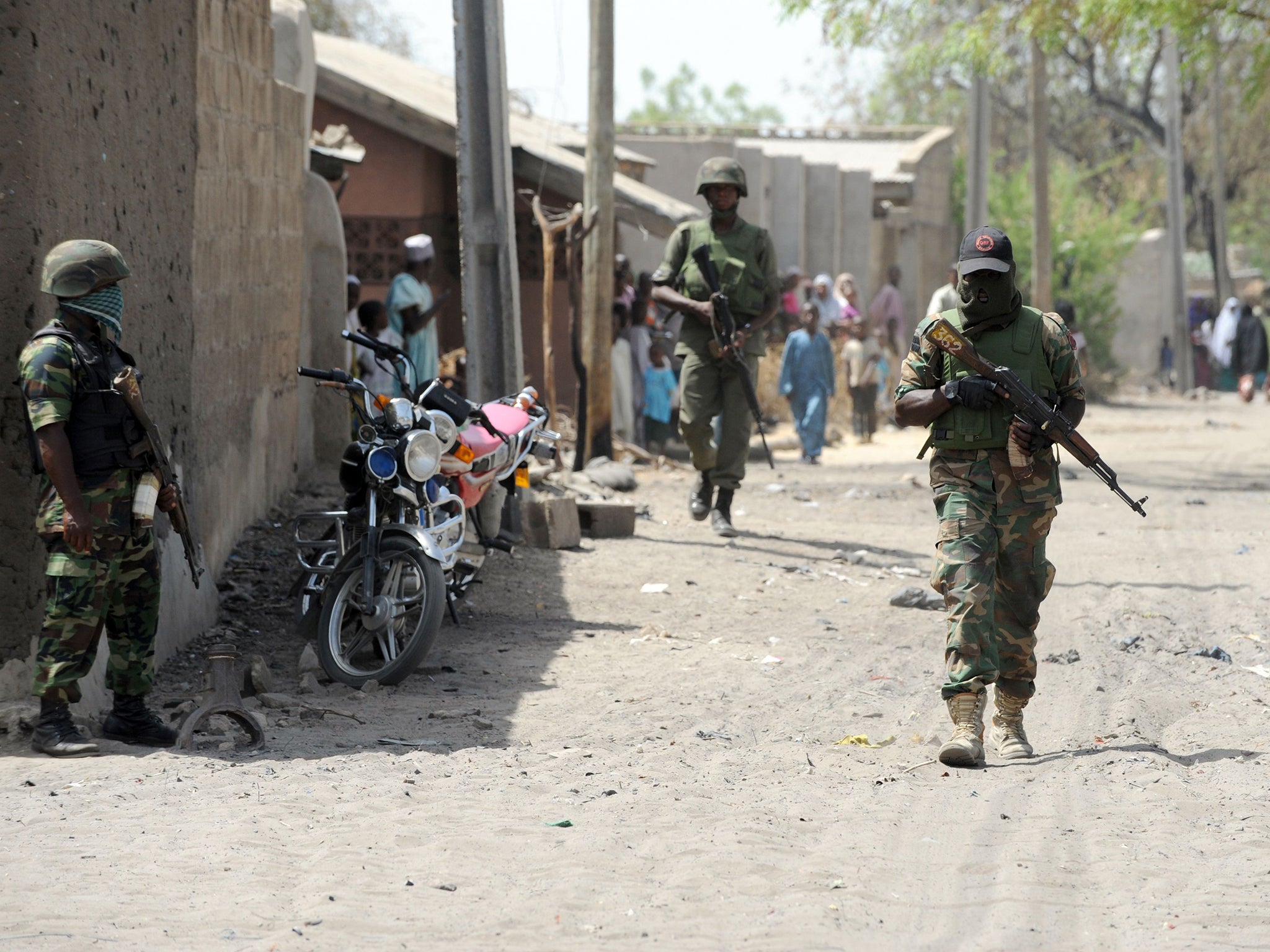Witnesses claim 2,000 people were killed in a Boko Haram assault that destroyed a town
Television footage showed scores of civilians waiting on the outskirts of Baga to catch buses

Your support helps us to tell the story
From reproductive rights to climate change to Big Tech, The Independent is on the ground when the story is developing. Whether it's investigating the financials of Elon Musk's pro-Trump PAC or producing our latest documentary, 'The A Word', which shines a light on the American women fighting for reproductive rights, we know how important it is to parse out the facts from the messaging.
At such a critical moment in US history, we need reporters on the ground. Your donation allows us to keep sending journalists to speak to both sides of the story.
The Independent is trusted by Americans across the entire political spectrum. And unlike many other quality news outlets, we choose not to lock Americans out of our reporting and analysis with paywalls. We believe quality journalism should be available to everyone, paid for by those who can afford it.
Your support makes all the difference.Two thousand men, women and children may have died in Boko Haram’s latest blood-letting in Nigeria’s north-east. Those, at least, are the claims.
But in the restive regions where the Islamists passage is barely opposed by government forces, few facts – as human rights groups told The Independent yesterday – are verifiable. Even as President Goodluck Jonathan launched his campaign for re-election this week, evidence appeared to emerge indicating that his government’s attempt to prevent Boko Haram forming an Islamic “caliphate” in the northern regions is failing.
As the militants swept through, over-running government forces, one town populated by thousands, Baga, had until last weekend held out against the insurgency.
Protected by a multinational military base manned by troops from Niger to Chad, it was the last place in Borno State under the national government’s control. Over the weekend, that changed. “They came through the north, the west and from the south of the town because the eastern part is only water,” one resident told the BBC. “So, when we [went] toward the western part, we saw heavily armed Boko Haram men coming toward us.”

At the sight of the insurgents, the soldiers put up scant resistance before abandoning their base and leaving residents defenceless. Politician Maina Maaji Lawan said Baga had been “burnt down” and estimated that 2,000 may have been killed. But other estimates placed the number dead at closer to 200. More than 10,000 people have been killed in the past year and more than a million displaced within Nigeria as a result of the five-year insurgency.
And Baga, local government officials now say, is no more, described as “virtually non-existent”. One man who escaped with his family told Agence France-Presse he had to navigate through “many dead bodies on the ground” and that the “whole town was on fire”. Another told Reuters: “I escaped with my family in the car after seeing how Boko Haram was killing people… I saw bodies in the street. Children and women, some were crying for help”. He added that bodies were “littered on the streets and in bushes”.
Television footage showed scores of civilians waiting on the outskirts of Baga to catch buses. Many carried the possessions they had salvaged, such as bags of clothes and rolled-up mattresses.
In the past week, around 2,000 Nigerians and 500 Chadians have fled Boko Haram attacks in Chad’s Lake region, the Chadian Prime Minister, Kalzeubet Pahimi Deubet, said on Wednesday. According to AFP, Boko Haram’s recent attack means the group controls all of Borno’s borders with Niger, Chad and Cameroon.
The Cameroon President, Paul Biya, yesterday appealed for international assistance to fight Boko Haram. The group is part of a movement that has attacked Mali, the Central African Republic and Somalia in its drive to establish its authority from the Indian Ocean to the Atlantic, he said. “A global threat calls for a global response. Such should be the response of the international community, including the African Union and our regional organisations.”
Join our commenting forum
Join thought-provoking conversations, follow other Independent readers and see their replies
0Comments